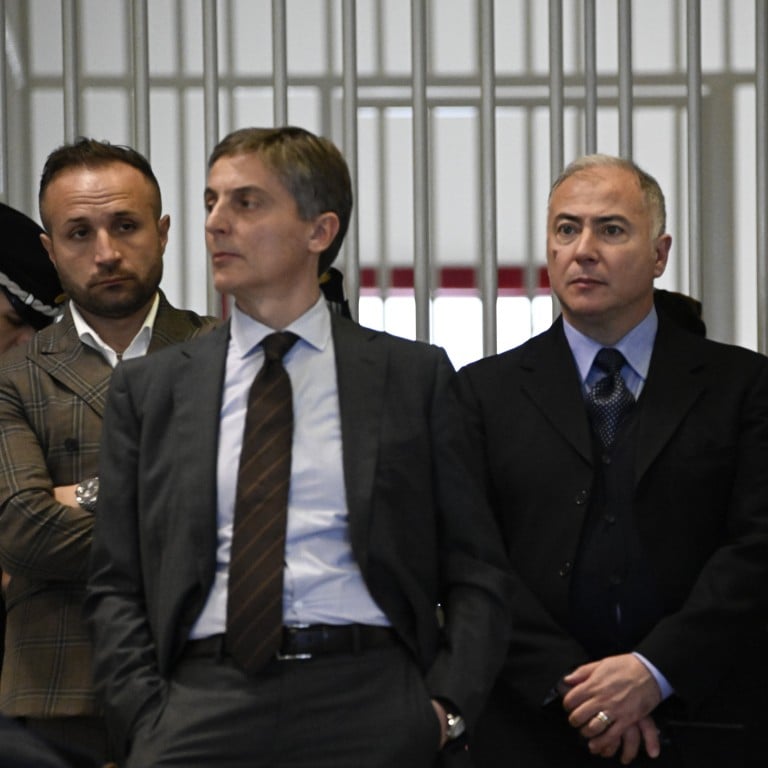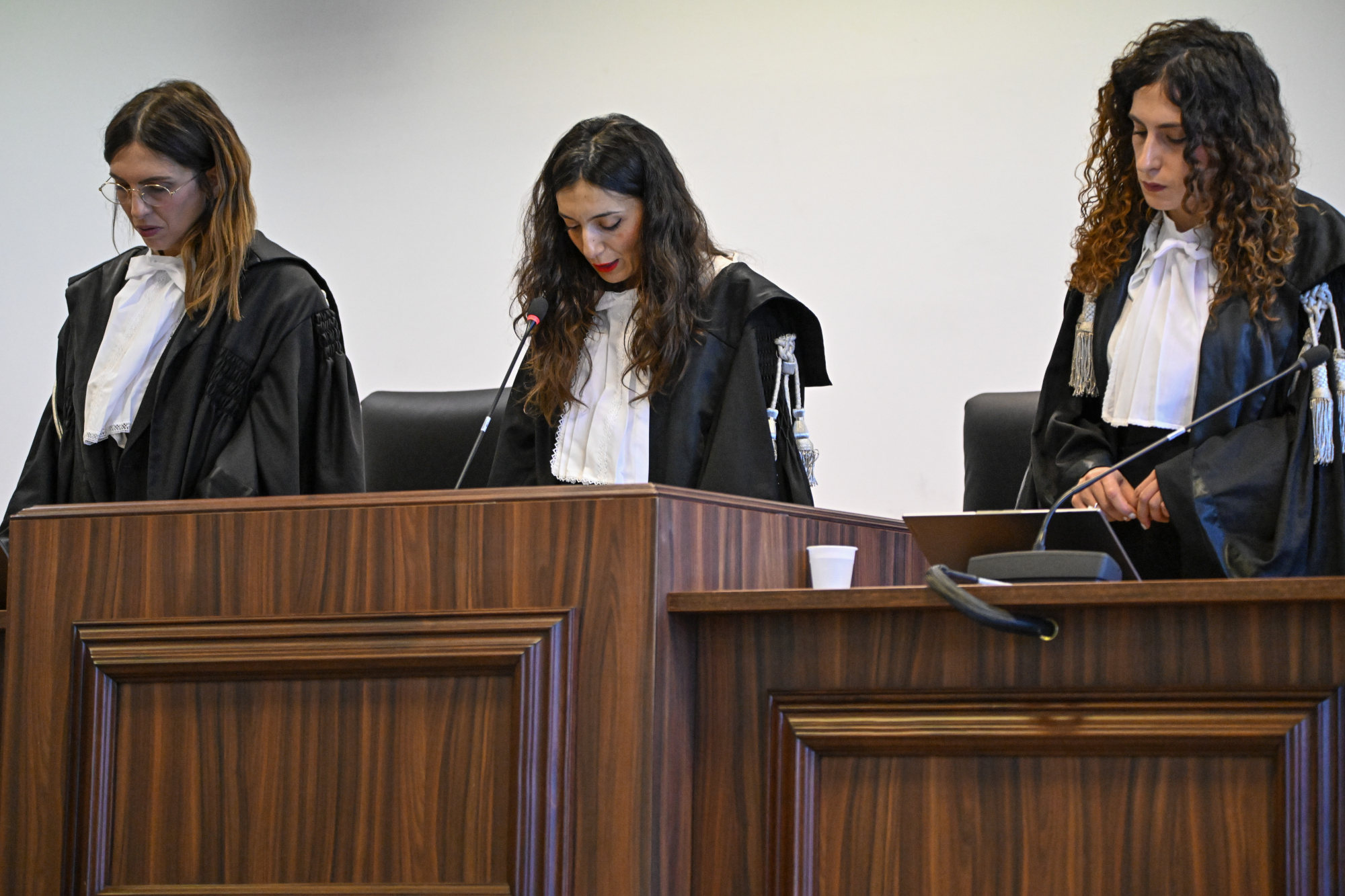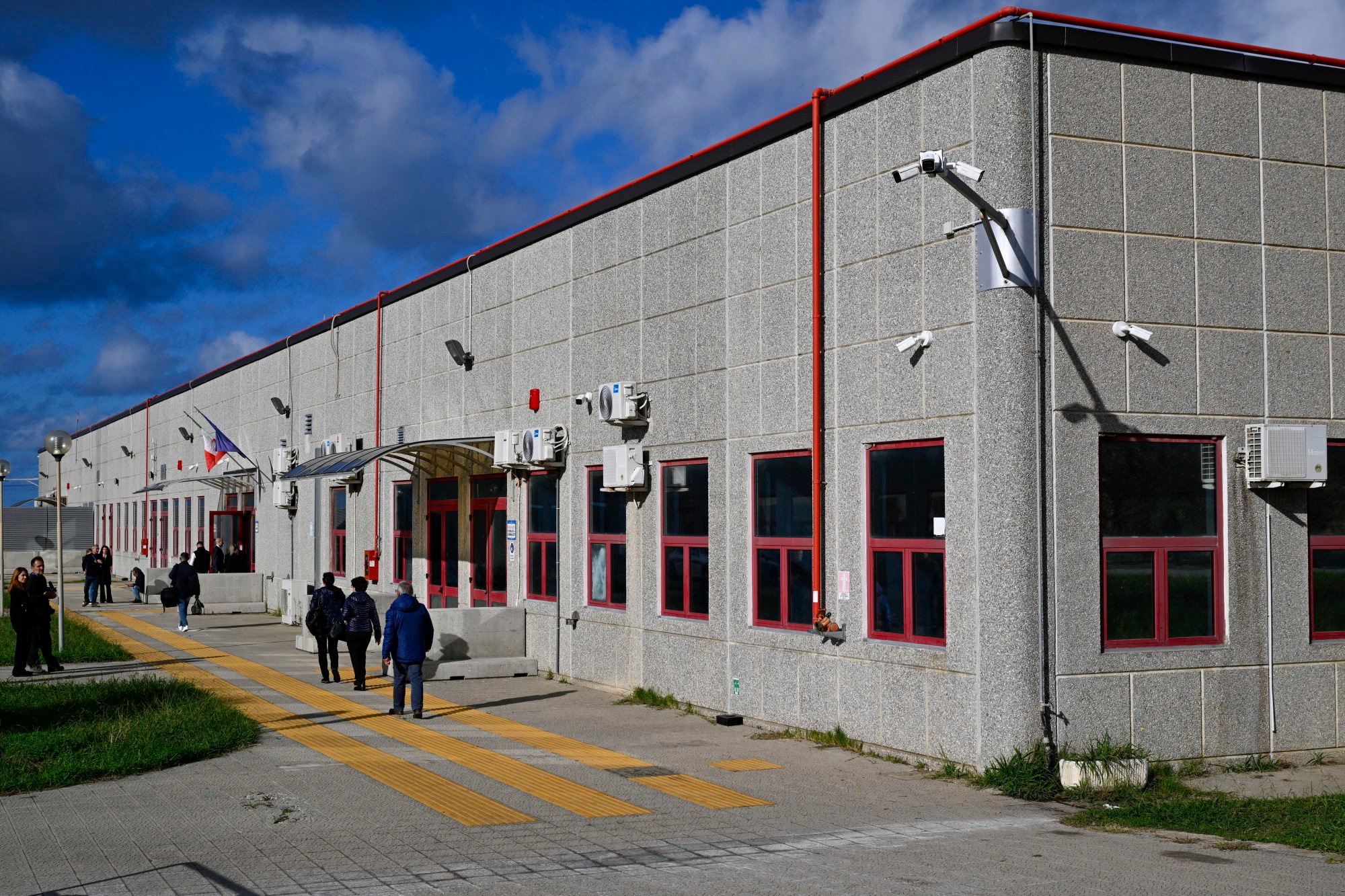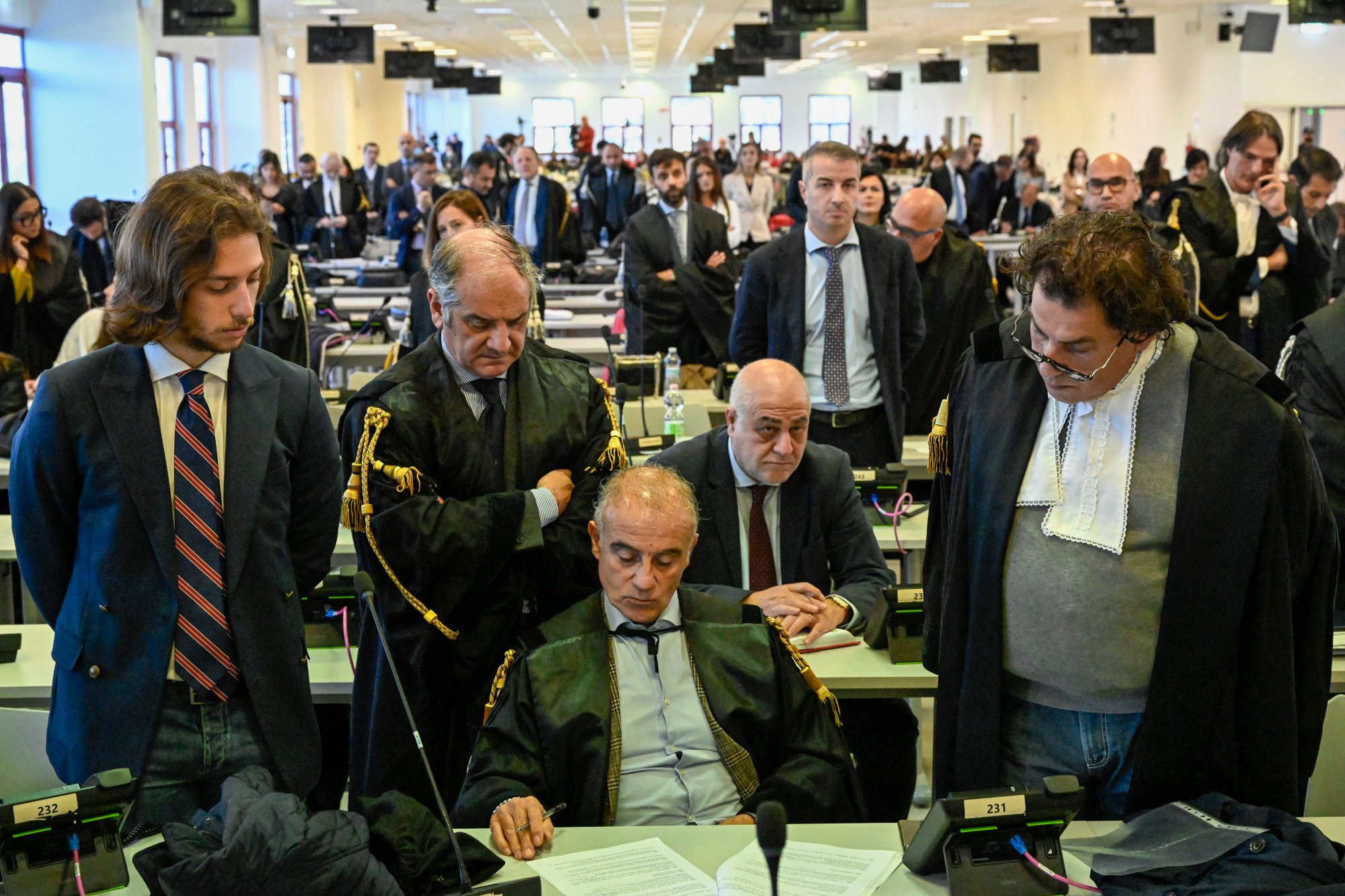
Italian mafia bosses get 30 years, hundreds of ‘Ndrangheta members found guilty in historic Calabria trial
- About 200 ‘Ndrangheta members were convicted and sentenced on Monday, although only four top members received the maximum penalty
- The verdicts capped Italy’s largest mafia trial in decades and mark the most significant blow against one of the world’s most powerful crime syndicates
An Italian court on Monday convicted and sentenced around 200 mobsters and their white-collar helpers, the culmination of a historic, nearly three-year trial against Calabria’s notorious ‘Ndrangheta mafia.
For over an hour and a half, the president of the court in southern Vibo Valentia, Brigida Cavasino, read out the names of the guilty and their sentences, which ranged from 30 years to a few months, as defendants incarcerated in prisons across the country watched via video link.
The court in many cases accepted the sentences recommended by the prosecution, which had called for terms totalling more than 4,700 years in all. Judgment went on for hours.
The accused faced charges including murder, membership of a criminal organisation, drug-dealing, money-laundering and corruption of state officials.
Prosecutors had asked for guilty verdicts against 322 accused mafia members operating in the Calabrian province and their white-collar collaborators, requesting 30 years for a dozen of the ‘Ndrangheta’s most seasoned decision-makers.

About 200 were convicted and sentenced on Monday, although only four top members received this maximum penalty. The remainder were either formally or effectively acquitted.
One of the trial’s most high-profile defendants, 70-year-old former parliamentarian and defence lawyer Giancarlo Pittelli, accused of being a fixer for the mafia, received 11 years, short of the 17 years prosecutors requested.
A few dozen family members sat in the back of the vast, narrow courtroom, squinting at the television screens for a glimpse of their loved ones, and occasionally crying out with joy over a light sentence.
The verdicts – which can be appealed twice – capped Italy’s largest mafia trial in decades and mark the most significant blow to date against one of the world’s most powerful organised crime syndicates.
The ‘Ndrangheta has moved beyond its roots in the poor southern Italian region of Calabria to exercise near-monopoly on the European cocaine trade, and is now found in more than 40 countries worldwide.
Since the trial began in January 2021, the court has heard thousands of hours of testimony, including from more than 50 former mafia operatives turned state witnesses.
Italy’s biggest mafia trial in more than 30 years aims to curb ‘Ndrangheta
They and others have detailed countless examples of the ‘Ndrangheta’s brutality and its stranglehold over the local population.
They include carrying out violent ambushes, shaking down business owners, rigging public tenders, stockpiling weapons, collecting votes or passing kickbacks to the powerful.
The accused were members or affiliates of the top ‘Ndrangheta “clan” in Vibo Valentia, one of the region’s many economically depressed rural areas where the mafia has suffocated the local economy, infiltrated public institutions and terrorised its people for decades.
The ‘Ndrangheta trial focused primarily on the Mancuso family, one of the branches. Two local bosses, Saverio Razionale and Domenico Bonavota, were sentenced to 30 years each.
The territory’s undisputed boss, Luigi “The Supreme” Mancuso, 69, was cut from the defendants list last year to be tried separately.
Hundreds of lawyers and a few dozen members of the media attended the sentencing on Monday in the heavily secured courtroom bunker in the Calabrian city of Lamezia Terme.

A high-security court was built in a former call centre in the city to house the trial with a courtroom measuring 100 by 35 metres and barred cells for the accused.
As many as 32 lavatories were provided to ensure that judges, lawyers, witnesses and the accused did not run into each other accidentally.
Also present was Rocco Mangiardi, 67, a local businessman and one of the first to denounce the ‘Ndrangheta for extortion before a judge in 2009.
Mangiardi, who has lived under police escort ever since, lamented the low turnout for the trial’s most important moment.
“This courtroom should be filled with citizens,” he said.
“To show the judges that we’re on their side and then to tell the mafiosi with their presence ‘We don’t want you.’”
The ‘Ndrangheta of Vibo Valentia – whose members have Nicknames straight out of Hollywood like “The Wolf”, “Fatty”, “Sweetie” and “Lamb Thigh” – were entrenched in the local economy, feared by business owners and farmers, and protected by white-collar professionals and politicians.
Italian mafia made ‘more cash than McDonald’s and Deutsche Bank’ in 2013
Informants – a relatively rare phenomenon within the ‘Ndrangheta due to blood ties between members – recounted how weapons were hidden in cemetery chapels and ambulances used to transport drugs, and municipal water supplies diverted to marijuana crops.
Those who opposed the mafia found dead puppies, dolphins or goat heads dumped on their doorsteps, sledgehammers taken to store fronts or cars torched.
Less lucky were those beaten or fired at – or those whose bodies were never found.
Long dismissed as mere livestock thieves, the ‘Ndrangheta flourished under the radar for decades as authorities concentrated efforts against Sicily’s Cosa Nostra – defendants in the first, now-legendary maxi-trial of 1986-1987 in Palermo.

Today, mafia experts estimate that the ‘Ndrangheta, made up of around 150 Calabrian families and their associates, bring in more than 50 billion euros (US$53 billion) annually around the world from drug trafficking, usury, siphoning public funds and extortion.
Relying on frontmen, shell companies and favours from the elite, the ‘Ndrangheta reinvests illegal gains in the legitimate economy, cementing its power.
For the first time in such trials, the defendants list included many non-mafia members, including a high-ranking police official, mayors and other public servants and businessmen.
Mafia expert Antonio Nicaso said ahead of the sentencing that although the maxi-trial was important, much needs yet to be done to eradicate the ‘Ndrangheta.
Italian mafia boss breaks out of jail through ‘hole in roof’: officials
“It’s about freeing the territory. The need to provide jobs, invest more money in education, challenging the mentality of people, building a sense of trust in institutions.
“That’s what you need to challenge a criminal organisation.”
Senior state prosecutor Nicola Gratteri, 65, has been leading the fight against the Mafia for more than three decades. He ordered the arrest of hundreds of suspects shortly before Christmas 2019, when 3,000 police officers were deployed – in Italy and other countries.
Warrants were issued separately abroad to ensure that Mafia members in state organizations could not warn the suspects.

.png?itok=arIb17P0)
